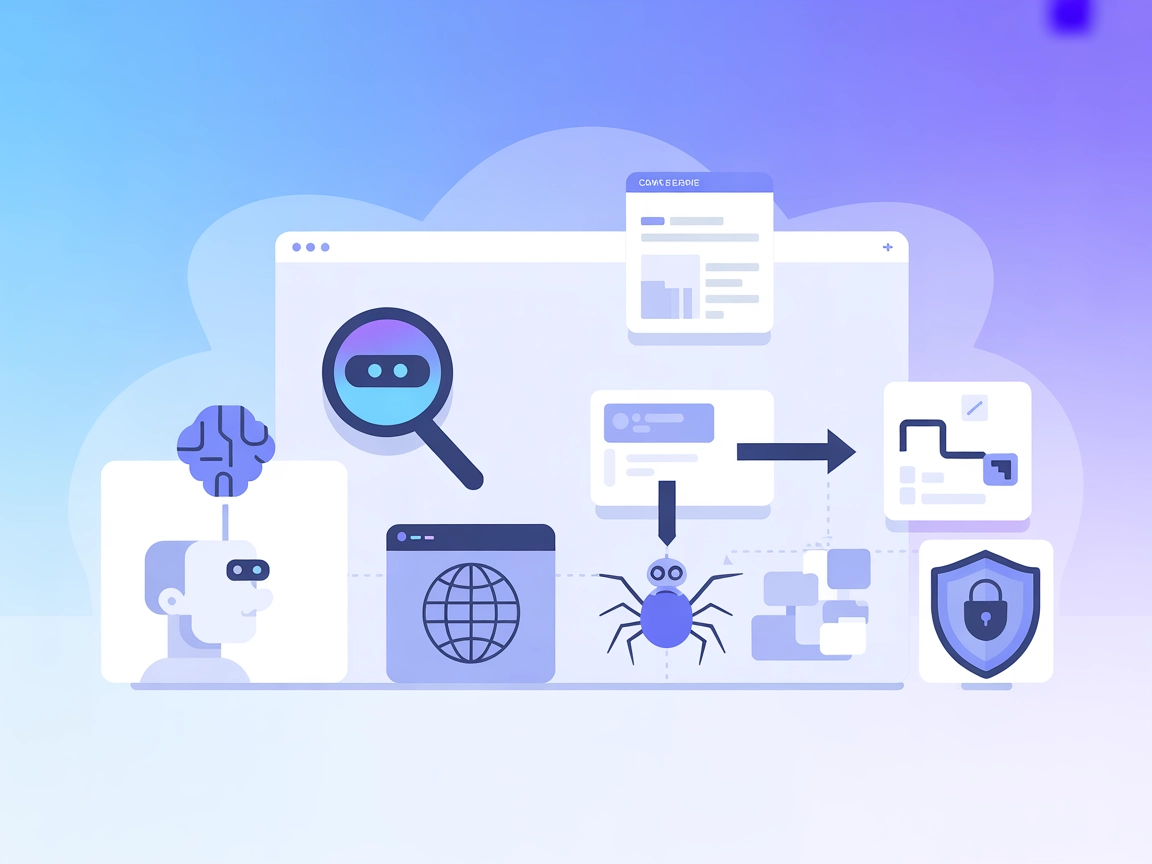
Model Context Protocol (MCP) Server
The Model Context Protocol (MCP) Server bridges AI assistants with external data sources, APIs, and services, enabling streamlined integration of complex workfl...

Tianji MCP Server enables your AI agents to interact with external data, APIs, and services, unlocking dynamic workflows and real-world automation for your AI applications.
FlowHunt provides an additional security layer between your internal systems and AI tools, giving you granular control over which tools are accessible from your MCP servers. MCP servers hosted in our infrastructure can be seamlessly integrated with FlowHunt's chatbot as well as popular AI platforms like ChatGPT, Claude, and various AI editors.
The Tianji MCP (Model Context Protocol) Server is designed to connect AI assistants with external data sources, APIs, or services, thereby enhancing development workflows and enabling more dynamic AI capabilities. By acting as a bridge between AI models and real-world resources, Tianji MCP Server empowers AI systems to perform a range of tasks, such as executing database queries, managing files, or interacting with various APIs. This facilitates seamless integration of external data and functionalities into AI-driven applications, making it easier for developers to build intelligent systems that require up-to-date information, automation, or operational context from outside sources.
No prompt templates were specified in the available files or documentation.
No explicit resources were listed in the available documentation or files.
No tools were detailed in the server.py or the available files in the repository path provided.
No specific use cases were described in the available repository documentation.
windsurf.config.json).mcpServers object:{
"mcpServers": {
"tianji": {
"command": "npx",
"args": ["@tianji/mcp-server@latest"]
}
}
}
{
"mcpServers": {
"tianji": {
"command": "npx",
"args": ["@tianji/mcp-server@latest"]
}
}
}
cursor.config.json or relevant config file.{
"mcpServers": {
"tianji": {
"command": "npx",
"args": ["@tianji/mcp-server@latest"]
}
}
}
{
"mcpServers": {
"tianji": {
"command": "npx",
"args": ["@tianji/mcp-server@latest"]
}
}
}
Use environment variables to manage secrets. Example configuration:
{
"mcpServers": {
"tianji": {
"command": "npx",
"args": ["@tianji/mcp-server@latest"],
"env": {
"API_KEY": "${API_KEY}"
},
"inputs": {
"apiKey": "${API_KEY}"
}
}
}
}
Using MCP in FlowHunt
To integrate MCP servers into your FlowHunt workflow, start by adding the MCP component to your flow and connecting it to your AI agent:

Click on the MCP component to open the configuration panel. In the system MCP configuration section, insert your MCP server details using this JSON format:
{ “tianji”: { “transport”: “streamable_http”, “url”: “https://yourmcpserver.example/pathtothemcp/url" } }
Once configured, the AI agent is now able to use this MCP as a tool with access to all its functions and capabilities. Remember to change “tianji” to whatever the actual name of your MCP server is and replace the URL with your own MCP server URL.
| Section | Availability | Details/Notes |
|---|---|---|
| Overview | ✅ | Brief description of Tianji MCP Server included. |
| List of Prompts | ⛔ | No prompt templates found. |
| List of Resources | ⛔ | No resources documented. |
| List of Tools | ⛔ | No tools found in available files. |
| Securing API Keys | ✅ | Environment variable usage example provided. |
| Sampling Support (less important in evaluation) | ⛔ | No information on sampling support. |
Based on the above, the Tianji MCP Server appears to be in an early or undocumented state regarding MCP-specific features such as prompts, resources, and tools. Its setup instructions are clear, but its practical capabilities are not documented in the examined code or README.
| Has a LICENSE | |
|---|---|
| Has at least one tool | |
| Number of Forks | |
| Number of Stars |
I would rate this MCP server a 2/10 based on the available documentation and feature completeness, as it lacks practical details or examples for users and developers, and there is no evidence of implemented MCP primitives or tools in the provided files.
The Tianji MCP (Model Context Protocol) Server bridges AI agents with external data sources, APIs, and services. It enables AI models to access real-world information, automate external operations, and integrate live data into workflows.
Use environment variables to store API keys. In your MCP server configuration, reference these variables for secure access and secret management.
No prompt templates, tools, or resources are included in the current release or documentation. Tianji MCP Server is designed for extensibility and connection to external resources as defined by the user.
Add the MCP component to your flow, connect it to your agent, and insert your Tianji MCP server configuration (with the correct transport and URL) in the system MCP configuration panel. The agent can then access Tianji MCP's capabilities.
Use Tianji MCP Server to connect AI agents to live APIs, databases, file systems, and external tools—enabling dynamic data retrieval, automation, and operational context in your AI-driven applications.
Easily bridge your AI assistants to external APIs and services for smarter, more dynamic applications. Deploy Tianji MCP Server in your FlowHunt workflow today.

The Model Context Protocol (MCP) Server bridges AI assistants with external data sources, APIs, and services, enabling streamlined integration of complex workfl...

The ModelContextProtocol (MCP) Server acts as a bridge between AI agents and external data sources, APIs, and services, enabling FlowHunt users to build context...

The Tavily MCP Server bridges AI assistants with the live web, offering advanced real-time search, data extraction, website mapping, and crawling to dramaticall...
Cookie Consent
We use cookies to enhance your browsing experience and analyze our traffic. See our privacy policy.